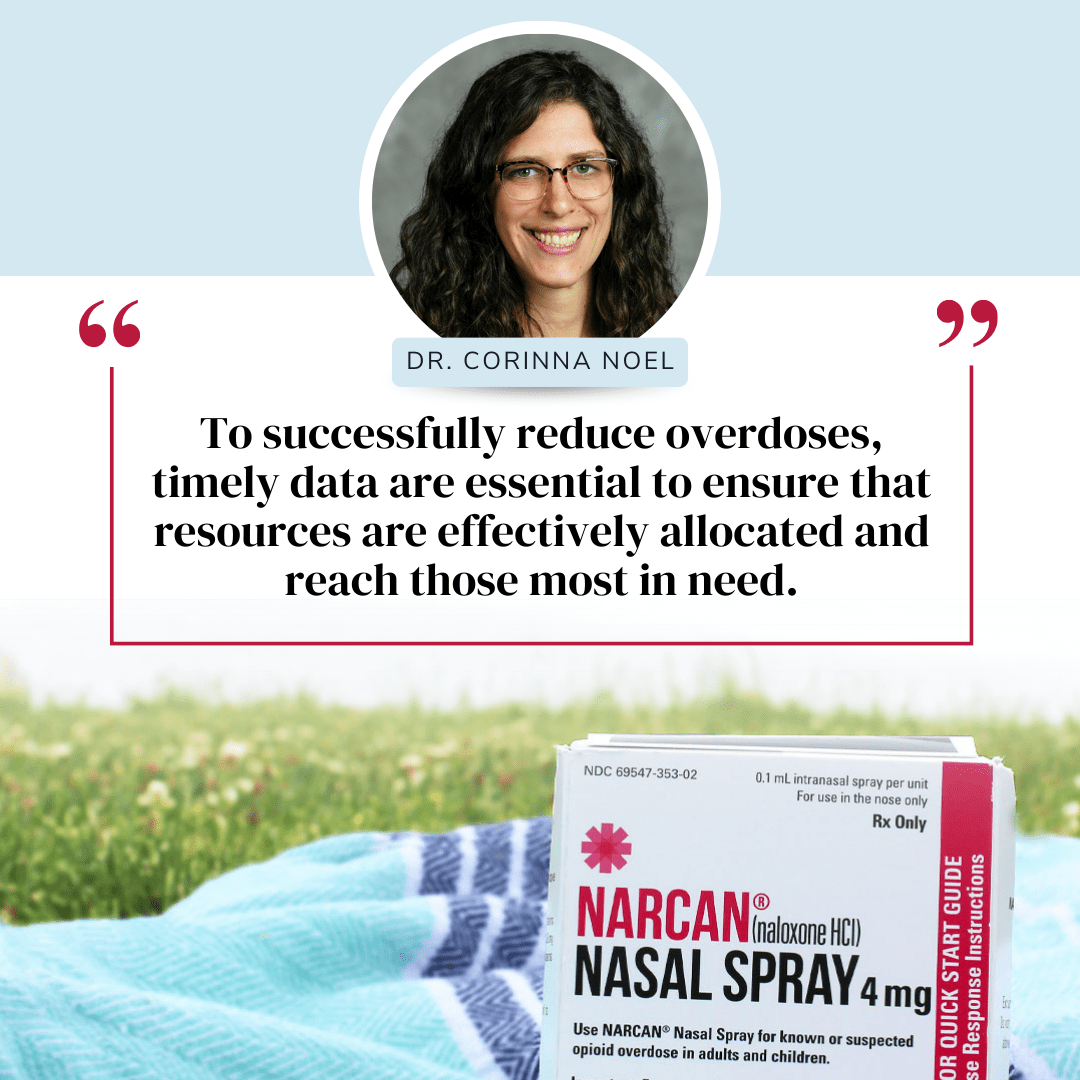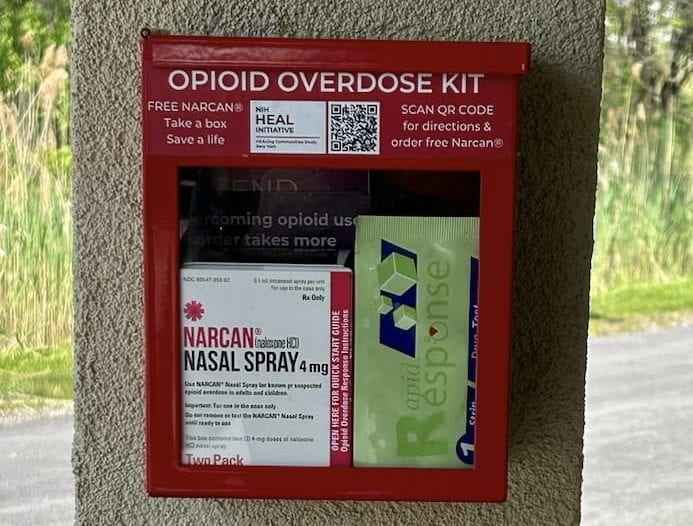Data-driven overdose interventions
 Since her days as a math major, Assistant Professor of Practice Dr. Corinna Noel has been eager to apply her quantitative skills to real-world challenges. She discovered epidemiology in graduate school and soon, she says, “I started using my epi skills to help solve public health problems with communities.” As the COVID-19 pandemic emerged, Dr. Noel took on a role as an epidemiologist with Cayuga County Mental Health. One of her main tasks in this rural upstate New York county was strengthening opioid overdose surveillance systems to “understand, on a detailed level, what was happening to whom.” Like many other communities, she says, Cayuga County’s overdose death rates “spiked” during the pandemic.
Since her days as a math major, Assistant Professor of Practice Dr. Corinna Noel has been eager to apply her quantitative skills to real-world challenges. She discovered epidemiology in graduate school and soon, she says, “I started using my epi skills to help solve public health problems with communities.” As the COVID-19 pandemic emerged, Dr. Noel took on a role as an epidemiologist with Cayuga County Mental Health. One of her main tasks in this rural upstate New York county was strengthening opioid overdose surveillance systems to “understand, on a detailed level, what was happening to whom.” Like many other communities, she says, Cayuga County’s overdose death rates “spiked” during the pandemic.
Driven by new surveillance data, Dr. Noel and her colleagues at Cayuga County Mental Health implemented a multi-faceted naloxone training program to target high-risk populations during isolation. Naloxone is an opioid antagonist that can temporarily reverse an overdose if administered quickly enough, but it requires bystanders to have naloxone on-hand and to understand how to use it.
To implement this new initiative, Dr. Noel identified overdose hotspots in the county. Her colleagues then offered popup trainings in these areas in multiple formats, including online, with naloxone delivered by mail, and in-person at the county jail. At the same time, boxes of naloxone were mounted on walls in high-risk areas. Around 41% of people receiving naloxone training had already witnessed an overdose, she says, “so we knew we were reaching the right people.” The program led to a significant increase in access to naloxone in Cayuga County while “mitigating transportation and stigma barriers.” According to evaluation data from those administering naloxone at overdose scenes the training program has saved at least 110 lives so far.
“This effort has been really community-driven,” she adds, having collaborated with over 20 stakeholders including treatment centers, law Dr. Corinna Noel, Assistant Professor of Practice To successfully reduce overdoses, timely data are essential to ensure that resources are effectively allocated and reach those most in need. enforcement agencies, and peer organizations. “I really value the opportunity to work with my own community on some of its most pressing public health problems” she says. Another initiative Dr. Noel helped launch is an Overdose Data Dashboard, so that “anyone can see what is going on in the county” with overdose trends, and find resources available in the community.
 Dr. Noel hopes these real-world cases can inspire her public health students to use epidemiology and analytical tools to “think about problems in different ways.” In her role teaching both epidemiology and public health nutrition courses for the Cornell Public Health Program, she is excited for students to apply “an epi mindset” to complex, real-world public health problems. Moving forward, public health student interns will also “help define long-term success” through outcome evaluation planning for the overdose data dashboard and another project that “seeks to divert overdose response away from law enforcement and towards mental health and treatment providers,” she says.
Dr. Noel hopes these real-world cases can inspire her public health students to use epidemiology and analytical tools to “think about problems in different ways.” In her role teaching both epidemiology and public health nutrition courses for the Cornell Public Health Program, she is excited for students to apply “an epi mindset” to complex, real-world public health problems. Moving forward, public health student interns will also “help define long-term success” through outcome evaluation planning for the overdose data dashboard and another project that “seeks to divert overdose response away from law enforcement and towards mental health and treatment providers,” she says.
In addition to her work with the opioid crisis, Dr. Noel is using data to understand impacts of wildfire smoke exposure on short-term mortality across the United States, helping to inform decision-making and public policy in collaboration with Cornell Public Health Assistant Professor of Practice Dr. Alistair Hayden. “As climate change continues,” she says, “we need to understand what the health impacts are, how they impact different health disparities, and how data can inform climate change solutions.”
Written by Audrey Baker
